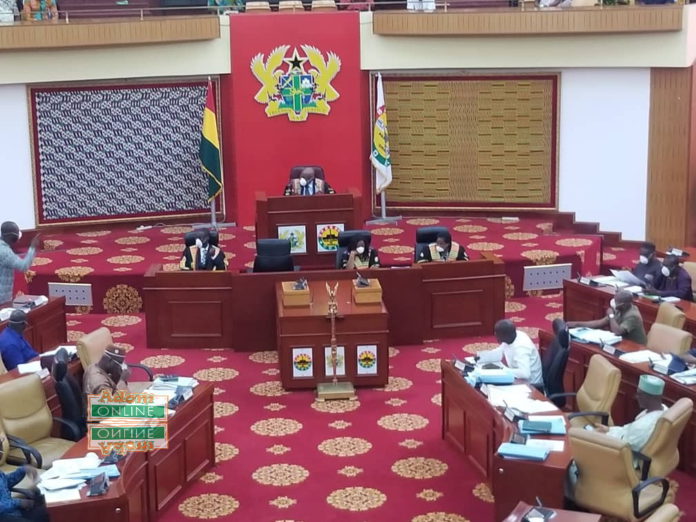Parliament has approved the Imposition of Restriction Bill 2020.
Among others, the Bill allows for the president to impose restrictions on the movement of people in the event of a disaster, emergency or similar circumstances to ensure public safety and protection.
The Bill allows the president to impose restrictions reasonably required in the interest of defence, public safety, public health or the running of essential services. It also allows the president to impose restrictions on movement or residence within Ghana of any persons. The president could also restrict the freedom of entry into Ghana.
The Bill, additionally, says the president could impose restrictions “for the purpose of safeguarding the people of Ghana against teaching or propagation of a doctrine which exhibits or encourages disrespect for the nationhood of Ghana, the national symbols and emblems, or incites hatred against other community members.”
It also says the president can impose such restrictions through an executive order for a period not exceeding three months. If the restriction has to remain beyond that, the executive order has to be renewed.
Penalty
Anyone who flouts the restriction commits an offence and is liable on summary conviction to a fine of not less than 1000 penalty units and not more than 5000 penalty units. Each unit is GH¢12 putting the range of fine at between GH¢12,000 and GH¢60,000. The convict could also be liable to a prison term of not less than three months and not more than six months or both a fine and imprisonment.
The penalties were introduced into the Bill by Parliament’s Constitution and Legal Affairs Committee after the Minority complained the original document from the executive gave the president too much powers, including determining penalties.
President Akufo–Addo on Sunday night announced plans to introduce the bill to help deal with the Coronavirus spread in the country. The Attorney-General, Gloria Akufo, laid it on the floor on Wednesday night and it got approved under a certificate of urgency after about 48 hours.
Former Deputy Attorney-General, Dr. Domnic Ayine, who is Deputy Minority Spokesperson on Legal Affairs insists the new Bill does not deal with the coronavirus spread.
“The government used the coronavirus as an opportunistic window to bring this Bill to Parliament. All the justification was about coronavirus but there was no mention of coronavirus in the Bill,” he told JoyNews after the Bill passed.
Though he admits the restrictions can be used to deal with the issue of coronavirus spread, he says the Bill should rather have been specific as is the case in the UK and USA.
Now that the Bill has been approved by Parliament, it has to go to the president for assent before it becomes law.

